Krishna Janmashtami 2025 : Celebrating the Birth of Lord Krishna
By Lokanath Mishra
Krishna Janmashtami, a significant festival in Hinduism, will be celebrated on August 15th & 16th, 2025. This joyous occasion commemorates the birth of Lord Krishna, the Maha Vishnu, who is revered for his divine wisdom, compassion, and heroism.
The festival’s history dates back to ancient times, when Lord Krishna was born to Devaki and Vasudeva in a prison cell in Mathura.
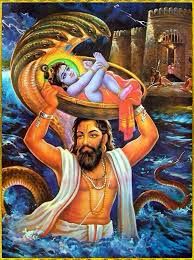
King Kansa, Devaki’s brother, had been warned by a prophecy that his demise would be at the hands of Devaki’s eighth child. To prevent this, Kansa imprisoned Devaki and Vasudeva and killed their first six children. However, Krishna’s birth was miraculously orchestrated, and he was secretly taken to Gokul, where he was raised by foster parents, Yashoda and Nanda.
Krishna Janmashtami is celebrated with great fervor and devotion across world . Some of the traditional practices include:

- Fasting: Devotees often observe a fast, which can range from a strict Nirjala fast (without food or water) to a Phalahar fast (eating fruits and milk-based products).
- Puja and Prayers: Temples and homes are decorated, and special prayers and rituals are performed, culminating in a midnight celebration to mark the exact time of Krishna’s birth.
- Dahi Handi: In some regions, particularly Maharashtra, Dahi Handi celebrations are held, where teams form human pyramids to break earthen pots filled with curd, a playful reenactment of Krishna’s childhood butter-stealing antics.
- Cultural Programs: Kirtans, bhajans, and cultural events are organized to celebrate Krishna’s life and teachings, which emphasize the importance of duty, selfless action, and devotion.
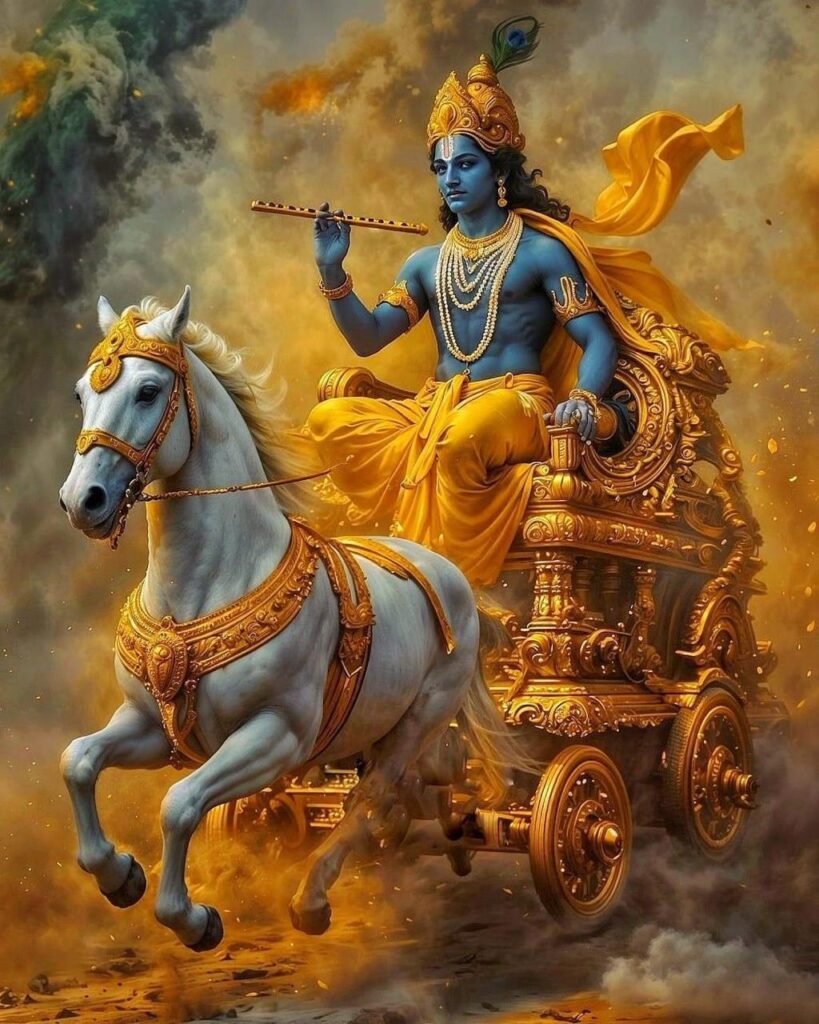
Through these celebrations, devotees seek to connect with the divine spirit of Lord Krishna and reflect on the timeless wisdom of his teachings.
In the ancient kingdom of Mathura, a tyrant named Kamsa reigned, consumed by fear and ambition. A prophecy foretold his demise at the hands of the eighth son of his sister Devaki and her husband Vasudeva. Determined to evade his destiny, the cruel king imprisoned the couple and systematically murdered each of their newborn children. However, destiny had a divine plan in store. Lord Vishnu, the preserver of the universe, had chosen to incarnate as Devaki’s eighth child, and nothing could stop the divine plan from unfolding.
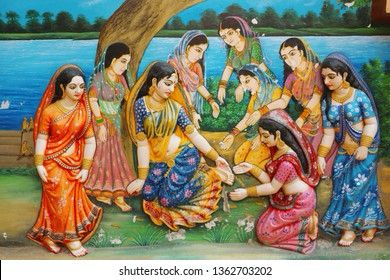
As Devaki’s eighth pregnancy approached, a sense of profound hope and dread filled the prison cell. On a stormy night, amidst darkness and despair, Lord Krishna was born. The prison walls crumbled, the guards fell into a deep sleep, and Vasudeva was guided by a divine voice to take the newborn Krishna across the raging Yamuna River and to the safety of Gokul. Miraculously, Vasudeva found the river parted, making way for his passage. In Gokul, he exchanged the divine baby Krishna with the newborn daughter of Nanda and Yashoda and returned to the prison with the baby girl. Unaware, Kamsa attempted to kill the infant, only to find she had ascended to the heavens, transforming into a goddess and reaffirming the prophecy.
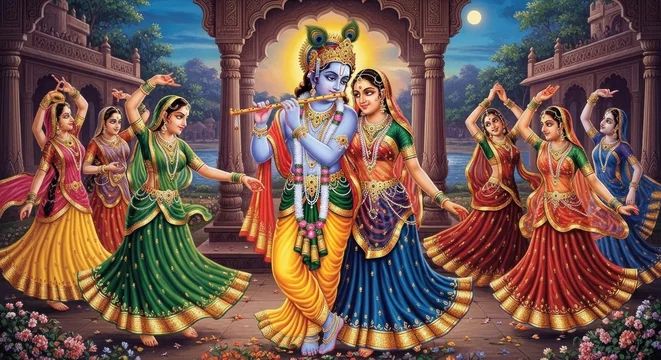
Krishna spent his childhood in the idyllic village of Gokul, fostered by the loving Nanda and Yashoda. Tales of his childhood paint a picture of a mischievous yet endearing child. His playful pranks, like stealing butter from the neighboring houses, only served to deepen the villagers’ affection for him. Krishna’s charming and joyful nature was infectious, radiating love and light throughout the community. As he grew older, his divine nature became increasingly apparent, and his actions were guided by a deep sense of compassion and wisdom.
As Krishna grew older, his true identity and purpose became clear. Filled with divine wisdom and strength, he was destined to defeat the evil Kamsa and liberate the kingdom of Mathura. The stories of his battles against demons sent by Kamsa, and his ultimate victory over his tyrannical uncle, are legendary, symbolizing the eternal struggle between righteousness and wickedness. Beyond his role as a liberator, Lord Krishna became a guiding light, a spiritual teacher revered for his wisdom and philosophy. His profound teachings, encapsulated in the sacred text of the Bhagavad Gita, are a cornerstone of Hindu philosophy, offering a path to spiritual enlightenment and inspiring millions across the world.
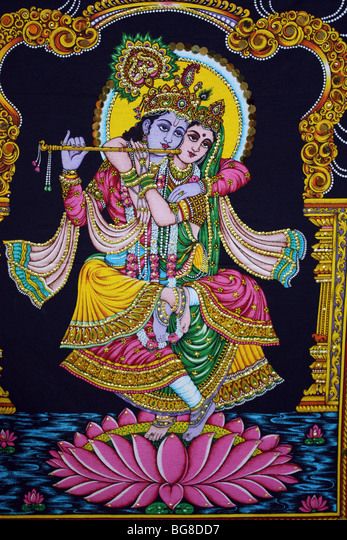
The Bhagavad Gita is a revered Hindu scripture that forms part of the Indian epic Mahabharata. It’s a 700-verse text written in Sanskrit, structured into 18 chapters, and comprises a dialogue between Prince Arjuna and Lord Krishna, who serves as his charioteer. The Gita addresses fundamental questions about life, existence, and purpose, offering insights into duty, spirituality, and ethical life choices.
Key Concepts:
- Dharma (Duty): Performing one’s duty without attachment to outcomes, emphasizing the importance of selfless action.
- Karma (Action): Focusing on actions rather than outcomes, aligning with dharma.
- Bhakti (Devotion): Cultivating devotion and surrender to a higher power, facilitating a connection with the divine.
- Jnana (Knowledge): Pursuing knowledge and self-realization to understand one’s true nature.
- Yoga: A path to spiritual realization, including Karma Yoga, Bhakti Yoga, and Jnana Yoga.
Gist of the Bhagavad Gita:
The Bhagavad Gita’s teachings can be summarized into three primary sections .
- Karma Yoga (Actions): Emphasizes selfless action, performing one’s duty without attachment to results.
- Bhakti Yoga (Devotion): Highlights the significance of devotion and surrender to a higher power.
- Jnana Yoga (Knowledge): Pursues knowledge and self-realization to understand one’s true nature.
Main Themes:
- Spiritual Growth: Emphasizes inner spiritual growth and finding balance amidst worldly challenges.
- Self-Realization: Encourages understanding one’s true nature and purpose.
- Ethical Living: Provides guidance on living a righteous life, addressing moral and philosophical dilemmas.
- Moksha (Liberation): Guides individuals toward self-realization and liberation from the cycle of birth and death .
Practical Applications:
- Managing Stress and Anxiety: Offers techniques for developing inner serenity and calmness.
- Building Resilience: Encourages developing qualities like bravery, tenacity, and perseverance.
- Conflict Resolution: Provides guidance on navigating moral dilemmas and making decisions aligned with one’s higher purpose .

Excellent